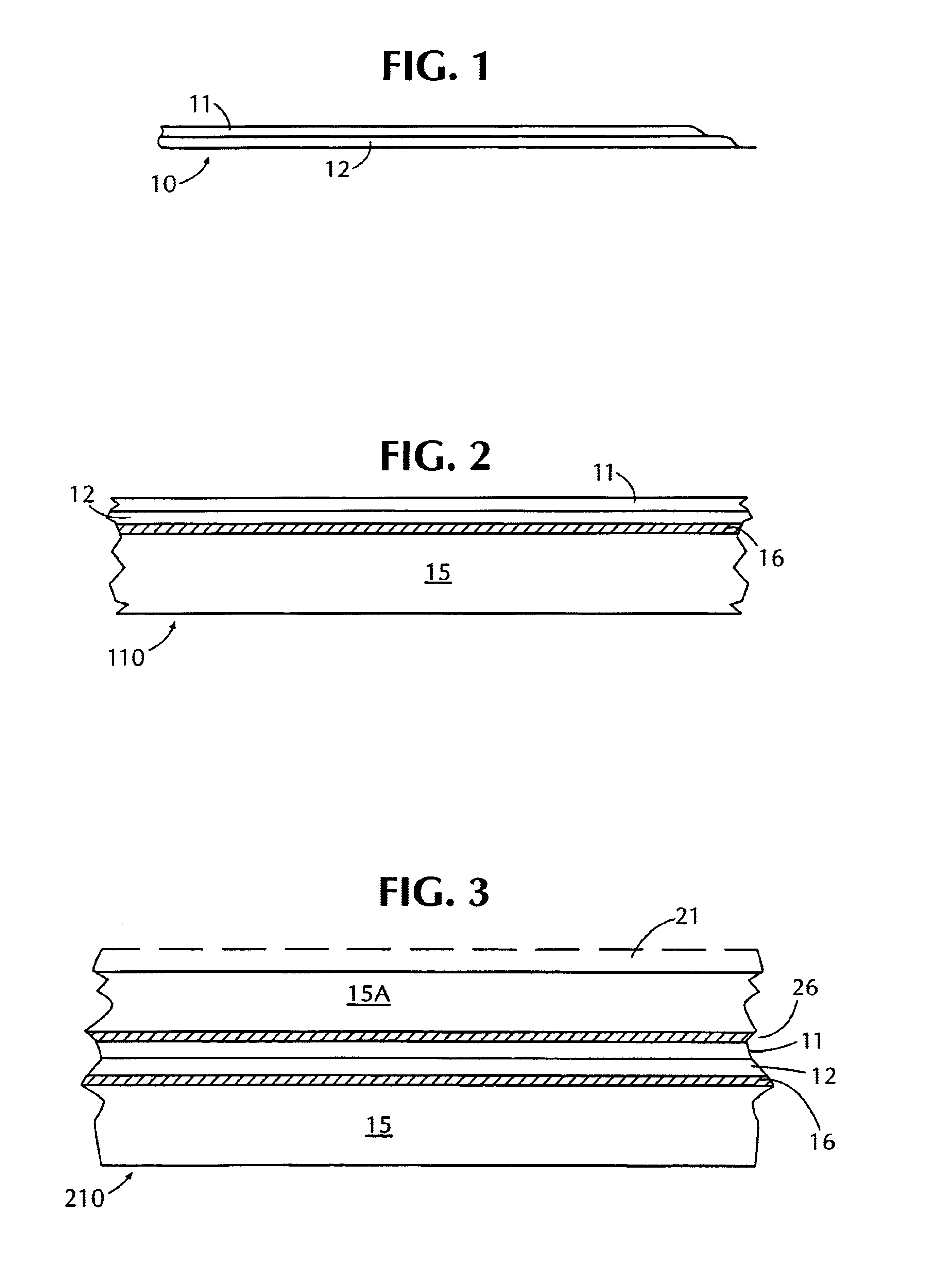Optically active film composite
a film composite and active technology, applied in the field of optically active film composites, can solve the problems of easy corrosion of metal layers, and achieve the effect of improving weatherability
- Summary
- Abstract
- Description
- Claims
- Application Information
AI Technical Summary
Benefits of technology
Method used
Image
Examples
example 1
comprises control samples outside of the present invention and is for reference only. Formulations comprising different ratios by weight of C & D were prepared by the addition of D to C, and coated onto 7 mil (175 microns) PET film. The optical properties of the various films are given in table 1 below.
The results in Table 1 demonstrate what is known from the prior art that is that it is possible to incorporate high loadings of ATO into a binder and still maintain a high % VLT and low haze levels. The % TSER is only moderate.
example 2
Example 2 comprises control samples in which composition A was coated onto 4 mil (100 microns) PET film for different layer thicknesses. The optical properties of the different thickness samples are shown in Table 2 below.
The results in Table 2 also demonstrate that for high levels of ATO the increase in film thickness does not necessarily have a proportionate effect on solar energy rejection (% TSER). The film clarity (% VLT) and haze levels are maintained but only moderate levels of solar rejection are possible.
example 3
Example 3 comprises control samples for formulations of B and D which are outside of the present invention. Different formulations were prepared by mixing D into B and the various formulations were coated onto 7 mil (175 micron) PET film. The optical properties are given in Table 3 below:
The data shows that the addition of B to D results in unacceptable levels of % VLT and haze, but for thicker coatings produces a suitable % TSER.
PUM
| Property | Measurement | Unit |
|---|---|---|
| thickness | aaaaa | aaaaa |
| reflectance | aaaaa | aaaaa |
| wavelengths | aaaaa | aaaaa |
Abstract
Description
Claims
Application Information
 Login to View More
Login to View More - R&D
- Intellectual Property
- Life Sciences
- Materials
- Tech Scout
- Unparalleled Data Quality
- Higher Quality Content
- 60% Fewer Hallucinations
Browse by: Latest US Patents, China's latest patents, Technical Efficacy Thesaurus, Application Domain, Technology Topic, Popular Technical Reports.
© 2025 PatSnap. All rights reserved.Legal|Privacy policy|Modern Slavery Act Transparency Statement|Sitemap|About US| Contact US: help@patsnap.com

